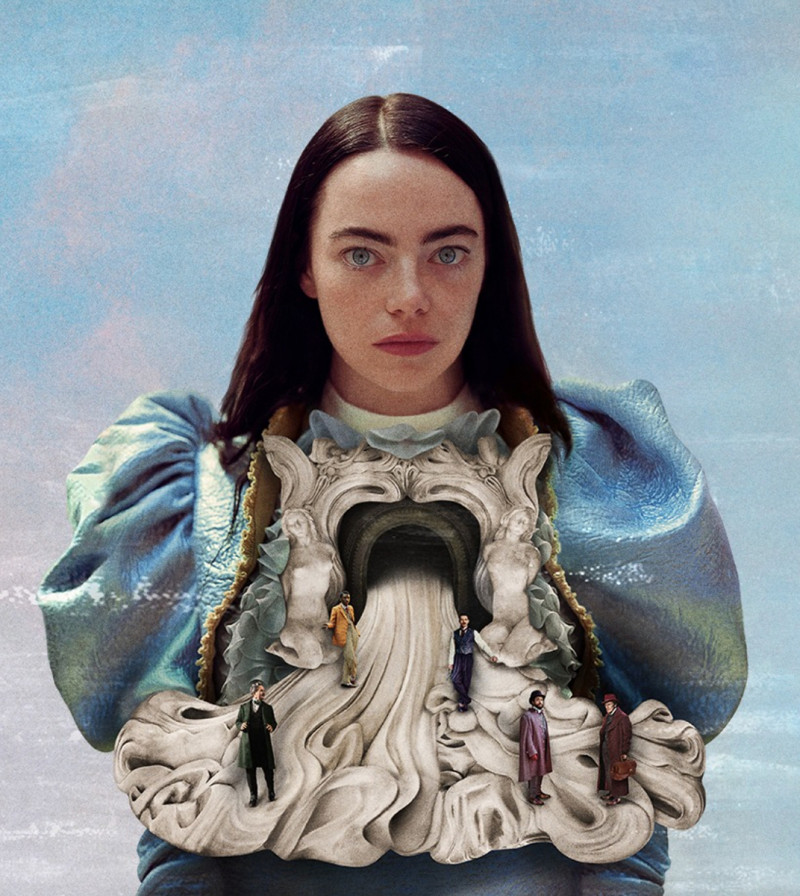Poor Things
(R18)
141 minutes
(3 out of 5)Reviewed by: Alessia Belsito-Riera
I truly disliked Poor Things for the first 30 minutes. When it dawned on me that it is cinematic magical realism, I became enthralled.
Directed by Greece’s surrealist son Yorgos Lanthimos, Poor Things is a tribute to Frankenstein starring Emma Stone as Bella Baxter, a woman created by Dr Godwin ‘God’ Baxter (Willem Dafoe). In a smutty romp through a distorted Europe and free from the constraints of her time, Bella embarks on an adventure in the pursuit of knowledge, becoming the ultimate self-made woman.
There are so many interesting technical elements in Poor Things. Beginning in black and white, the film is dowsed in technicolour once Bella leaves the confines of God’s home. Often filmed through a fish-eye lens, the world is distorted, disorienting, and unbalancing – a wonderful choice by cinematographer Robbie Ryan to place the viewer in Bella’s shaky shoes. Shona Heath and James Price’s set design is over-stimulating, phallic, garish, and unfamiliar, the world as perceived by Bella. Holly Waddington’s costumes are impractical and outlandish. They look incongruent on Bella’s unfamiliar body, a perfect reflection of how they must feel to our heroine.
Bella’s mental growth is mirrored by her physicality. As she consumes knowledge, she must also satiate her sexual needs; as she gradually masters language, she achieves the same with her gangly limbs. I wonder, however, if rather than mirroring her academic growth, Bella’s bodily escapades are actually driving her quest for knowledge.
Bella seems to discover herself and her world through her body; only after carnal indulgences does she ponder philosophical matters. I suppose this is how all humans progress, as the physical is much easier to grasp than the metaphysical, but for Bella the quest for the empirical is almost purely driven by physical interactions. What bothers me about this is that Bella views her world and herself in relation to men. This begs the question, if Poor Things had been written and/or directed by a woman, would it still possess that voyeuristic perspective underpinned by the male gaze?
Bella engages positively with female characters only briefly, and many of her other interactions with women are strained. Is this to underscore that the world of Poor Things is a male-dominated one, highlighting Bella’s own emancipation even more? In that case, when encountering male judgement, would Bella not find refuge and comfort in female companionship throughout her journey? Therefore Bella’s perspective becomes one seen through male eyes. Is it her own gaze then or is it a reclaimed projection? Either way it is not entirely hers. She absorbs and reinterprets this gaze, subverting it, but often it feels voyeuristic. Nevertheless, perhaps the point is that where male characters see only her physical beauty, her own self-worth comes from her independence, character, and empathy.
View more reviews:
« Click here


